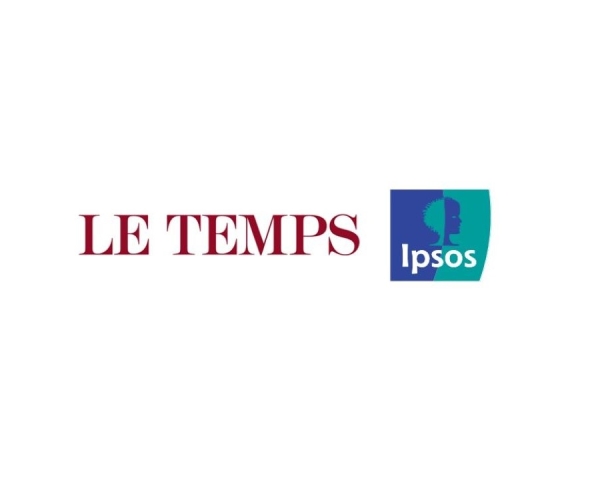

Switzerland: An island of reason in a sea of populism?
The survey, carried out between February 21 and March 7, 2025, gathered responses from 31 countries including a representative sample of 500 individuals across Switzerland, ensuring a 95% confidence interval in the findings.
Key Findings:
- "Broken system?" Not in our Switzerland. Only 32% of Swiss citizens think that Swiss society is 'broken', a rate significantly lower than the international average of the 31 countries (56%). The Swiss stand out from their neighbours: 77% of Germans consider their society to be fractured, 65% in France, 44% in Italy, and are closer to Singapore (22%).
- Societal decline? Swiss optimism shines, contrasting with a gloomy global outlook. Only 29% of Swiss consider society to be in decline, a figure significantly lower than that of its European neighbours. Indeed, this feeling of decline is much more pronounced in Italy (66%), Germany (68%) and even reaches a record level in France (75%).
- "Rigged" economy to advantage the rich and powerful? Our concerns remain muted compared to global anxieties. Swiss concerns remain moderate compared to the rest of the world. 53% think the Swiss economy is "rigged", a rate lower than the global average (68%) and many other countries in Europe: Hungary (75%), Italy (71%), France (69%) and Germany (65%).
- Traditional parties and politicians' levels of care? Distrust is contained in Switzerland, unlike elsewhere.44% of Swiss think that traditional parties and politicians do not care about people like them, which is lower than the international average (64%). France and Italy show a much higher level of mistrust (71% each), again highlighting the unique position of Switzerland. Once again, similarities with Singapore are noted with 38% (the lowest observed).
- Experts: Swiss pragmatism prevails over global skepticism. Although 46% of Swiss think that "experts do not understand people's lives", this rate is much lower than the average of the 31 countries (62%), France (69%) and Italy (67%). On the other hand, the Swiss are closer to their German neighbors on this subject (49%).
- Calls for strong leadership find significantly less resonance among the Swiss. 40% say that Switzerland needs "a strong leader to take the country back from the rich and powerful", far from the global average of 64% in the survey. French, German and Italian neighbors record 57%, 41% and 60% respectively on this point.
- Attitudes towards immigration unveiling Swiss ambivalence.
- Mixed opinions on immigration. In Switzerland, 39% of the population believe that stopping immigration would make their country stronger, while 35% think the opposite. This duality is similarly observed in France (39% thinking that stopping immigration would make their country stronger) and Italy (40%), but less pronounced than in Germany (46%).
- Priority to the employment of Swiss employees in times of crisis. 59% of Swiss are in favor of national preference in times of job shortages. This preference, although widespread globally (average of 60%), is more pronounced in Switzerland than in its European neighbors (Germany 40%, Italy 47%, France 51%).
- Our Media: A critical point of view, but less cynical. 58 % of Swiss think that the media prioritizes money over truth, a less pronounced view than the global average (67%) and some European countries, particularly in France (70%) and Italy (69%). Germany (60%), like Switzerland, is more nuanced on this point.
- Direct democracy: a pillar of Swiss stability. The referendum is one way to make major political decisions for 52% of Swiss citizens, echoing the actual system made of both referendums and decisions made by elected officials. A figure slightly lower than the international average (58%), and Italy (56%) but significantly below France (63%) where the disconnect with parties and elites is much stronger
"In an international context marked by a rise in populist sentiment and growing distrust of elites and the "system", Switzerland stands out as an exception, as shown by the results of our global survey on populism" says Laurent Depouilly, Managing Director of Ipsos Switzerland. "This Swiss particularity is certainly explained by the unique political system, which combines cantonal autonomy and direct democracy as well as by the relatively good health of the Swiss economy. These elements seem to provide the necessary safeguards to prevent the populist disenchantment observed in other countries.".
Read more here on the article featured in Le Temps: La Suisse, rempart contre le populisme - Le Temps
Technical note: Ipsos interviewed 23,228 people online in 31 countries between Friday, February 21, and Friday, March 7, 2025. Quotas were set to ensure representativeness and data have been weighted to the known population profile of each country. The sample consists of approximately 1,000 individuals each in Australia, Brazil, Canada, France, Germany, Great Britain, Italy, Japan, Mexico, New Zealand, Spain, and the U.S., and 500 individuals each in Argentina, Belgium, Chile, Colombia, Hungary, Indonesia, Ireland, Malaysia, Mexico, the Netherlands, Peru, Poland, Singapore, South Africa, South Korea, Sweden, Switzerland, Thailand, and Türkiye. The sample in India consists of approximately 2,200 individuals, of whom approximately 1,800 were interviewed face-to-face and 400 were interviewed online.




